Political Analysis. The Council on Hemispheric Affairs.
By COHA Research Associate Geoff LeGrand
 Washington.-On September 26th, Venezuela held its first parliamentary elections since 2005. While Hugo Chávez’ United Socialist Party of Venezuela (PSUV) retained a majority in Venezuela’s National Assembly, the opposition, largely represented by the Democratic Unity Coalition (MUD), made massive gains. Moreover, according to the OAS, Venezuela’s democratic institutions operated pristinely. The elections were largely uncontroversial, with few instances of technical error, violence, or accusations of fraud. These elections ultimately proved positive for all parties involved. The PSUV can honestly say that it won the elections; the opposition can honestly say that it dealt the PSUV a harsh blow, and Venezuela as a whole can say that its institutions functioned properly and democratically.
Washington.-On September 26th, Venezuela held its first parliamentary elections since 2005. While Hugo Chávez’ United Socialist Party of Venezuela (PSUV) retained a majority in Venezuela’s National Assembly, the opposition, largely represented by the Democratic Unity Coalition (MUD), made massive gains. Moreover, according to the OAS, Venezuela’s democratic institutions operated pristinely. The elections were largely uncontroversial, with few instances of technical error, violence, or accusations of fraud. These elections ultimately proved positive for all parties involved. The PSUV can honestly say that it won the elections; the opposition can honestly say that it dealt the PSUV a harsh blow, and Venezuela as a whole can say that its institutions functioned properly and democratically.
Was the election a Referendum on Chavez?
The period between Venezuela’s two parliamentary elections was defined by high levels of polarization and numerous political controversies. Chávez left the 2005 elections with a solid majority, which reflected both his popularity and the decision of numerous opposition parties to boycott the elections. Since then, Chávez has embroiled himself in controversy after controversy. Some of these divisive situations, such as the one surrounding his 2006 speech at the UN in which he implied that former U.S. President George W. Bush was the devil, were little more than boisterous verbal gaffes. Others, such as his 2007 attempt to reform the Venezuelan constitution, have had far more serious political consequences. For many observers, the September elections represented a referendum on the past 5 years of Chavismo.
Winner #1: The PSUV
By all accounts, the PSUV came out of the parliamentary elections a winner. After all, on the eve of the elections many analysts argued that, because Chávez’s was facing drastically low popularity ratings, the PSUV might lose control of the National Assembly. In reality, the PSUV took at least 98 of the Assembly’s 165 seats (some seats remain undecided), giving them a simple majority and putting them just one seat away from being able to grant Chávez special decree powers that would allow him to circumvent the legislature on some issues. While this still represents a loss relative to the 114 seats that the PSUV won in 2005, that relative loss was to be expected given the opposition’s boycott of the 2005 elections. More importantly, the loss was not nearly as disastrous as many predicted going into the elections.
Given the accusations of electoral manipulation that have been frequently leveled against him, Chávez can also take solace in how uncontroversial these elections have unfolded. With no major parties choosing to boycott the elections, a voter turnout of 66 percent (as compared to 25 percent in 2005), and no major complaints of fraud, these elections can only bolster Chávez’s democratic legitimacy. Moreover, now that the opposition has gained a significant presence in the National Assembly, it will have far more trouble accusing Chávez of electoral manipulation.
Winner #2: The Opposition
While Chávez and the PSUV clearly left the elections victorious, the opposition has equal cause to celebrate. Their decision to boycott the elections in 2005 was nothing less than disastrous. Rather than seriously delegitimizing Chávez, the boycott effectively allowed him to rule without significant legislative opposition and left the opposition little more than political commentators. These elections, in which the opposition has taken at least 65 of the National Assembly’s legislative seats, signify an opportunity for the opposition to reintegrate itself with Venezuela’s democratic institutions.
Because they stopped the PSUV from gaining a two-thirds majority, the opposition will be able to block PSUV appointments and particularly far-reaching legislation. While the PSUV will certainly try to push many major reforms through the National Assembly in the upcoming months before the newly elected representatives take their seats in January 2011, the opposition will be able to slow down the pace of reform considerably once the new National Assembly convenes. Compared to the carte blanche the opposition gave Chávez in 2005, this election is a major step forward for the opposition. Moreover, the opposition will almost certainly try to maintain its momentum and cultivate the opportunity to convert its parliamentary wins into success in the upcoming 2012 presidential elections.
Winner #3: Venezuelan Democracy
A third clear winner is Venezuelan democratic institutions themselves. In the run-up to the parliamentary elections, the legitimacy of many of Venezuela’s democratic institutions was questioned by both international and domestic actors. As of yet, no meaningful criticisms have been raised against the most recent elections. Four non-governmental organizations were authorized to monitor the elections, while each coalition was allowed to invite 30 foreign election monitors. Although a number of frequent election-monitoring organizations, such as the Carter Center and the OAS were not invited to act as election monitors, 150 representatives of the OAS, as well as members of the European Union, and the United Nations, along with a number of other organizations were invited to observe the elections. It is also worth noting that, opposition critiques notwithstanding, Venezuela has been routinely commended by prominent election monitoring organizations, including the OAS, for its free and fair elections. Many also noted that it would be extremely difficult for the PSUV to engage in election fraud because they would have had to circumvent Venezuela’s sophisticated electronic voting system, which was endorsed by the Carter Center after its use in the 2006 presidential election. These elections have also demonstrated there is no proof to support the claims of Venezuelan media bias and censorship. In a poll of the two major state-owned television stations and the four private stations, 60.3 percent of political TV advertising was pro-opposition.
Lingering Tensions
While these elections were successful, the rhetoric surrounding them was still overwhelmingly antagonistic. However, accusations in both sides proved to be more of a political maneuvering. Both Chávez and the opposition have signaled their respect for Venezuela’s electoral process, and given that both, in their respective fashions, are leaving these elections winners, it is unlikely that either will be making any serious accusations in the upcoming weeks.
Looking Forward
The parliamentary elections were an undeniable success. These elections allowed both the opposition and the PSUV to keep their heads held high, and demonstrated the strength of Venezuela’s democratic institutions. However, polarization remains unhealthily high in Venezuela. The rhetoric surrounding the elections remains vicious and vehemently antagonistic. Nevertheless, these elections may well be an important step in ratcheting down Venezuela’s political tension. Both the opposition and the PSUV are now positively invested in Venezuela’s democratic process, which will allow both the PSUV and the opposition to channel their antagonism into institutional mechanisms, rather than vicious personal attacks. Thus, it is not so simple, as per the typical media responses, that the results of the elections either validate or entirely repudiate Chávez. These results authenticate his democracy, but it is a democracy in trouble and highly vulnerable to challenge in subsequent elections In order for Chávez to minimize this vulnerability and maximize political stability it is crucial that all actors come to trust Venezuela’s democratic institutions. The success of these recent elections is an important milestone in Venezuela’s quest to make that goal a reality.
Elecciones parlamentarias de Venezuela: Todo el mundo gana
Análisis Político del Consejo de Asuntos Hemisféricos
Por Geoff Legrand, analista asociado de COHA
WASHINGTON.— El 26 de septiembre, Venezuela celebró elecciones parlamentarias, las primeras desde 2005. Mientras el Partido Socialista Unido de Hugo Chávez (PSUV) retuvo la mayoría en Asamblea Nacional, la oposición, representada por la Coalición Democrática Unidad (MUD), logró enormes avances. De acuerdo con la Organización de Estados Americanos (OEA), las instituciones democráticas de Venezuela, operaron impecablemente. Los comicios no presentaron controversias; hubo pocos casos de errores técnicos, violencia o acusaciones de fraude. En última instancia, fueron positivas para todas las partes implicadas. El PSUV puede decir con honestidad que ganó las elecciones, la oposición también puede afirmar que asestó un duro golpe al PSUV, y Venezuela en su conjunto puede asegurar que sus instituciones funcionan de forma correcta y democrática.
¿Fue la elección un referéndum para Chávez?
El periodo entre las elecciones parlamentarias de Venezuela se puede definir como una época de altos niveles de polarización y numerosas controversias políticas. Durante las elecciones de 2005, Chávez logró una sólida mayoría que reflejó entonces tanto su popularidad como la decisión de numerosos partidos de oposición de boicotear los comicios. Desde entonces, Chávez se ha visto involucrado en controversia tras controversia. Algunas de estas situaciones que dividieron a la opinión pública como su discurso ante la Organización de las Naciones Unidas (ONU) en 2006, en el que dio a entender que el ex presidente George W. Bush era el diablo, fueron quizá un poco más que ruidosas metidas de pata verbales. Otros, como su intento en 2007 para reformar la Constitución venezolana, han tenido más consecuencias políticas graves. Sin embargo, para muchos observadores, las elecciones de septiembre representan un referéndum en los últimos cinco años de chavismo.
Ganador # 1:
No cabe duda que el PSUV salió victorioso de las elecciones parlamentarias. Después de todo, en la víspera de los comicios muchos analistas sostuvieron que, dado que Chávez enfrentaba drásticos índices de popularidad, el PSUV podría perder el control de la Asamblea Nacional. Aunque el resultado sí fue una pérdida para el PSUV ya que sólo obtuvo 98 de los 165 escaños de la Asamblea (algunos puestos aún permanecen indecisos), lo que representa una simple mayoría y lo coloca a un escaño de distancia de poder otorgar a Chávez poderes especiales para decretar, lo que permitiría eludir la legislatura en algunos temas. Si bien esto representa una pérdida en relación con los 114 escaños que el PSUV ganó en 2005, ésta es relativa y era de esperarse dado al boicot de la oposición en las elecciones de 2005. De hecho, la pérdida no fue tan desastrosa como muchos predijeron.
Dadas las acusaciones de manipulación electoral que son frecuentemente formuladas contra Chávez, ahora puede sentirse orgulloso por la manera en que se desarrollaron estas elecciones. Sin grandes partidos que optaran por boicotear los comicios, el número de votantes fue de 66 por ciento (frente a 25 por ciento en 2005), y sin mayores quejas de fraude, las elecciones fortalecieron la legitimidad democrática de Chávez. Por otra parte, ahora que la oposición ganó una importante presencia en la Asamblea Nacional, enfrentará más problemas cuando quiera acusar a Chávez de manipulación electoral.
Ganador # 2:
Mientras Chávez y el PSUV salieron triunfantes de las elecciones, la oposición también tiene motivos para celebrar. Su decisión de boicotear las elecciones de 2005 fue nada menos que desastrosa. En lugar de realmente deslegitimar a Chávez, el boicot le permitió gobernar sin una oposición legislativa importante y la dejó sola en manos de los comentaristas políticos. Estas elecciones, en las que la oposición logró obtener por lo menos 65 de los escaños de la Asamblea Nacional, le presentan la oportunidad de reintegrarse a las instituciones democráticas de Venezuela.
Debido a que evitaron que el PSUV obtuviera una mayoría de dos tercios, la oposición será capaz de bloquear los nombramientos del PSUV y particularmente legislaciones de largo alcance. Sin duda, el PSUV tratará de impulsar muchas reformas importantes a través de la Asamblea Nacional en los próximos meses ante los recién electos representantes que ocuparán sus escaños hasta enero de 2011. Durante este tiempo, la oposición podrá intentar bajar el ritmo que pudiese dar paso a muchas reformas. En comparación con el cheque en blanco que le dio a Chávez en 2005, esta elección es un gran paso adelante para la oposición. Por otra parte, es casi seguro que tratarán de mantener su impulso y cultivar la oportunidad de convertir sus victorias parlamentarias en un nuevo éxito para las elecciones presidenciales de 2012.
Ganador # 3:
El tercer ganador son desde luego las instituciones democráticas venezolanas. En el periodo previo a las elecciones parlamentarias, la legitimidad de muchas de éstas fue cuestionada por los actores nacionales e internacionales. Hasta el momento, no se han planteado críticas significativas en contra de los recientes comicios. Cuatro organizaciones no gubernamentales (ONG) fueron autorizados a supervisar las elecciones, mientras que cada coalición se permitió invitar a 30 observadores extranjeros de su elección. Aunque un número de organizaciones que frecuentemente actúan como observadores electorales extranjeros, como el Centro Carter y la OEA, no fueron invitados; 150 representantes de la OEA, así como los miembros de la Unión Europea y las Naciones Unidas, junto con un número de otras organizaciones actuaron como tales. También vale la pena señalar que, a pesar de las críticas de la oposición, frecuentemente, Venezuela ha recibido el reconocimiento de prominentes organizaciones de observación electoral, incluida la OEA, por sus elecciones libres y justas.
Muchos observadores también destacaron que hubiese sido muy difícil para el PSUV participar en un fraude electoral, ya que existen sofisticados sistemas de votación electrónica en ese país, aprobados por el Centro Carter, después de su uso en la elección presidencial de 2006. Asimismo, los comicios demostraron que no hay bases que apoyen las denuncias de supuesta parcialidad y censura de los medios venezolanos. En una encuesta de las dos principales estaciones de televisión de propiedad estatal y las cuatro estaciones privadas, 60.3 por ciento de la publicidad televisiva política fue a favor de la oposición.
Tensiones persistentes
Aun cuando las pasadas elecciones fueron un éxito, la retórica a su alrededor fue tremendamente antagonista. Sin embargo, las acusaciones de ambos lados sólo lograron poner en evidencia que no era una cuestión de maniobras políticas. Tanto Chávez como la oposición demostraron su respeto por el proceso electoral venezolano, y dado que ambos, en su muy particular estilo, concedieron los triunfos a los ganadores, será muy difícil que cualquiera de las partes opte por hacer acusaciones serias en las semanas por venir.
Mirando hacia adelante
Las elecciones parlamentarias fueron un triunfo innegable. Permitieron tanto a la oposición como al PSUV mantener la cara en alto y demostraron la fuerza de las instituciones democráticas venezolanas. Sin embargo, la polarización es todavía enfermizamente alta en el país. La retórica sigue feroz y antagónica, pero con todo y ello los comicios podrían ser un paso importante para aligerar las tensiones políticas en Venezuela. Tanto la oposición como el PSUV, están ahora investidos positivamente dentro del proceso democrático del país, lo que permitirá a ambos canalizar su antagonismo a través de mecanismos institucionales en lugar de hacerlo mediante el ataque personal. Aunque no será tan sencillo, como lo manejan típicamente los medios, que los resultados de dicha elección son o una validación o un repudio a Chávez, el hecho es que los resultados autentifican la democracia, aunque ésta tenga problemas y sea altamente vulnerable a los retos de futuras elecciones.
A fin de que Chávez pueda minimizar esta vulnerabilidad y maximizar la estabilidad política, es crucial que logre que todos los actores confíen en las instituciones democráticas venezolanas. El éxito real de las pasadas elecciones radica en la búsqueda del país en hacer de esta meta una realidad.
Revista Protocolo

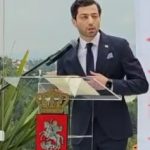
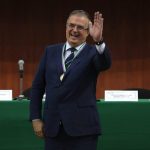

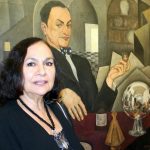



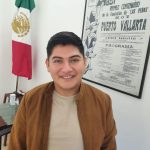


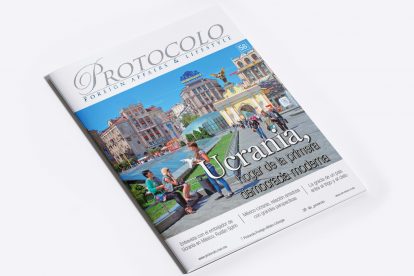
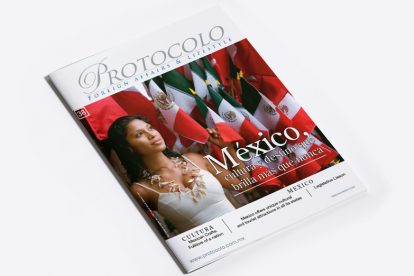
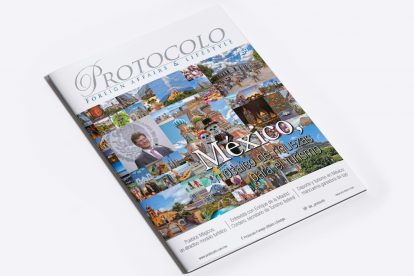

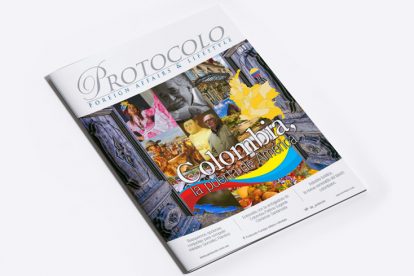
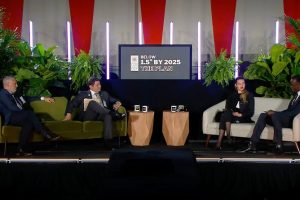


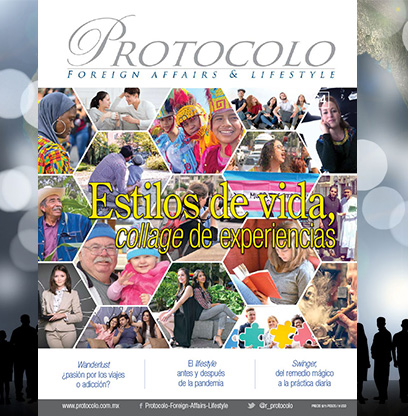
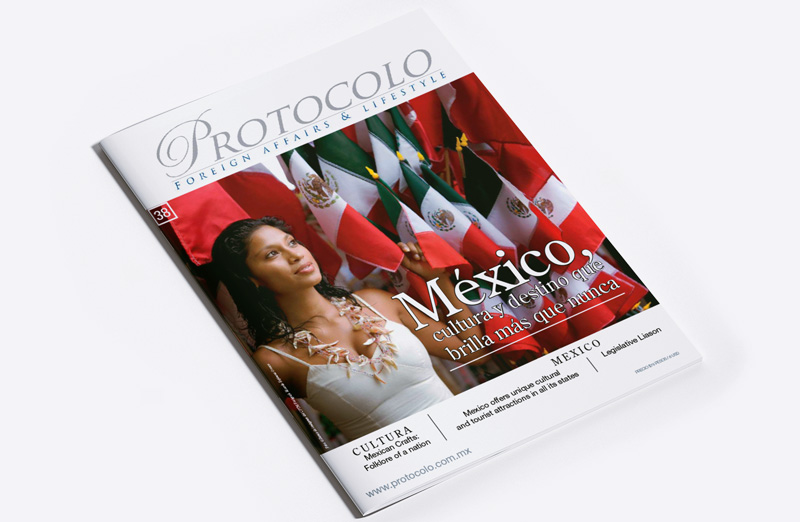
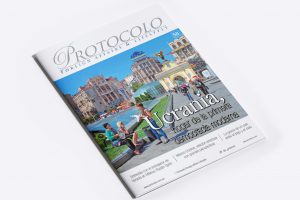

Un comentario